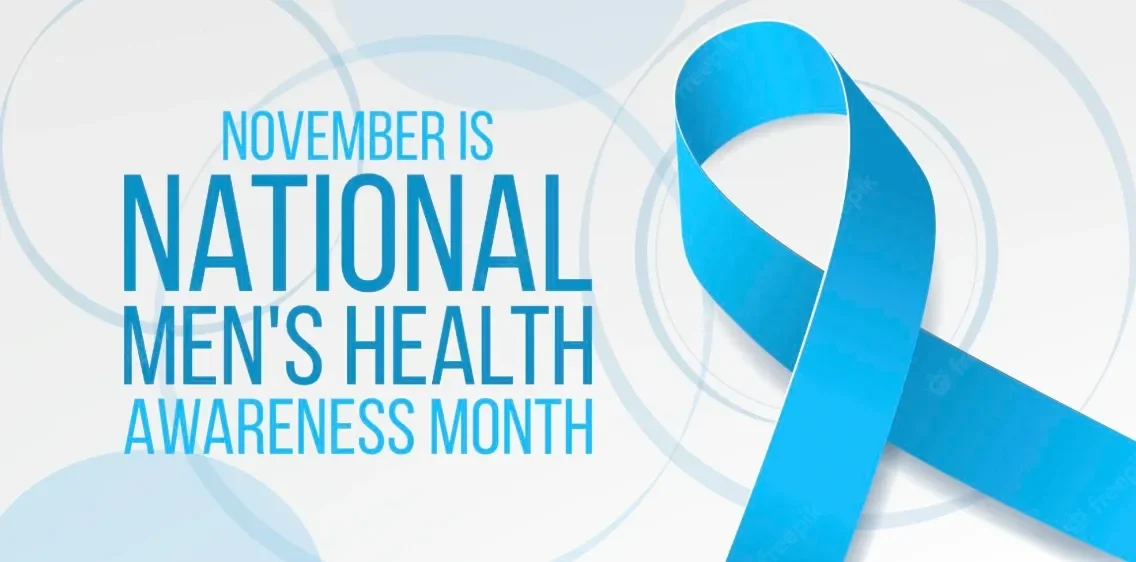By A.A. LEWIS
November is National Men’s Health Awareness Month—a time to shift the conversation toward prevention, awareness, and longevity. For Black men, taking control of health isn’t just personal—it’s generational. Studies continue to show that Black men face higher risks for several health conditions, from heart disease to prostate cancer, often due to genetic predispositions, social barriers, and limited access to consistent care. But knowledge and early action can change that.
Here’s a guide to the essential screenings Black men should add to their annual to-do list—and when to start them.
The Black Man’s Health Checklist: Annual Screenings Every Brother Should Prioritize
1. Annual Physical Exam (Starting at Age 20+)
A yearly physical with a primary care physician is the foundation for long-term health. This visit checks weight, blood pressure, heart rate, and other vital signs while opening the door for honest conversations about family history, stress, and lifestyle choices. It’s also the perfect time to discuss any new symptoms or concerns before they become serious issues.
2. Blood Pressure Screening (Starting at Age 20+)
High blood pressure, or “the silent killer,” disproportionately affects Black men. It can lead to heart disease, stroke, and kidney failure—often without symptoms. Blood pressure should be checked at least once a year, or more frequently if elevated. Maintaining a healthy diet, reducing sodium, and staying active are key steps to prevention.
3. Cholesterol and Heart Health Tests (Starting at Age 25–35)
Heart disease remains a leading cause of death among Black men. Starting in your mid-20s to early 30s, get your cholesterol levels checked every 4–6 years—or annually if you have high blood pressure, diabetes, or a family history of heart disease. A simple blood test can reveal risks before a problem arises.
4. Blood Sugar / Diabetes Screening (Starting at Age 35+)
Type 2 diabetes affects Black men at higher rates than many other groups. A fasting blood sugar or A1C test can identify prediabetes or diabetes early, when it’s still manageable. If overweight or with a family history of diabetes, start screening earlier and repeat yearly.
5. Prostate Cancer Screening (Starting at Age 40–45)
Prostate cancer is one of the most common cancers in Black men, who are more likely to be diagnosed at an advanced stage. Discuss screening options such as the PSA (prostate-specific antigen) test with your doctor beginning at age 40. Early detection dramatically improves outcomes.
6. Colorectal Cancer Screening (Starting at Age 45)
Colorectal cancer is both preventable and treatable when caught early. Black men should begin colonoscopy screenings at 45, or sooner if there’s a family history. After the initial test, follow-up frequency depends on results—typically every 10 years.
7. STD and HIV Testing (Starting at Age 20+)
Routine testing is essential for sexually active men. Black men continue to face higher rates of HIV and other sexually transmitted infections. Annual testing helps ensure both personal and partner safety—and should be free of stigma.
8. Mental Health Check-In (Any Age)
Emotional and mental well-being are as vital as physical health. Stress, anxiety, and depression can silently impact quality of life. Whether through therapy, support groups, or trusted conversation, prioritize mental wellness as part of your yearly checkup.
9. Eye and Dental Exams (Starting at Age 20+)
Vision and dental health are often overlooked but can signal other health concerns. Eye exams should happen every 1–2 years, and dental cleanings every 6 months. Diabetes and hypertension often show early signs in the eyes and gums.
The Bottom Line: Prevention Saves Lives
Black men are powerful, resilient, and strong—but strength also means taking care of yourself before something goes wrong. Scheduling these annual screenings is an act of love—for yourself, your family, and your future.
This November, take the time to book those appointments, encourage your brothers, and normalize conversations about health. The goal isn’t just to live longer—it’s to live better.
6 Ways Black Women Can Help Guide the Conversation on Men’s Health This November
November is National Men’s Health Awareness Month—a time to spotlight the importance of regular checkups and screenings that can save lives. Black women play a vital role in encouraging the men they love—fathers, brothers, husbands, sons, and friends—to prioritize their health. Here are six meaningful ways to help guide that conversation:
Start with Love, Not Fear
Approach the topic from a place of care and concern, not criticism. Let him know you want him healthy and around for years to come. Love opens doors that lectures can’t.
Share the Facts
Many men underestimate their health risks. Gently share statistics about common issues—like high blood pressure, prostate cancer, and diabetes—especially those that disproportionately affect Black men.Normalize the Checkup
Treat doctor visits like a routine part of life, not a reaction to illness. Encourage annual physicals and explain that prevention is power.Lead by Example
When you schedule your own screenings or wellness visits, mention it. Showing that you value your health can motivate him to do the same.Go Together
Offer to help find a trusted doctor or even accompany him to appointments if he’s anxious or reluctant. Support and accountability can make a big difference.Celebrate the Wins
When he takes a step toward better health—like scheduling a checkup or eating healthier—acknowledge it. Positive reinforcement builds lasting habits.
Black women have always been the heart of the family and community. By guiding these vital conversations, you’re helping protect the men who protect, love, and lead—ensuring they have the health and strength to thrive.



